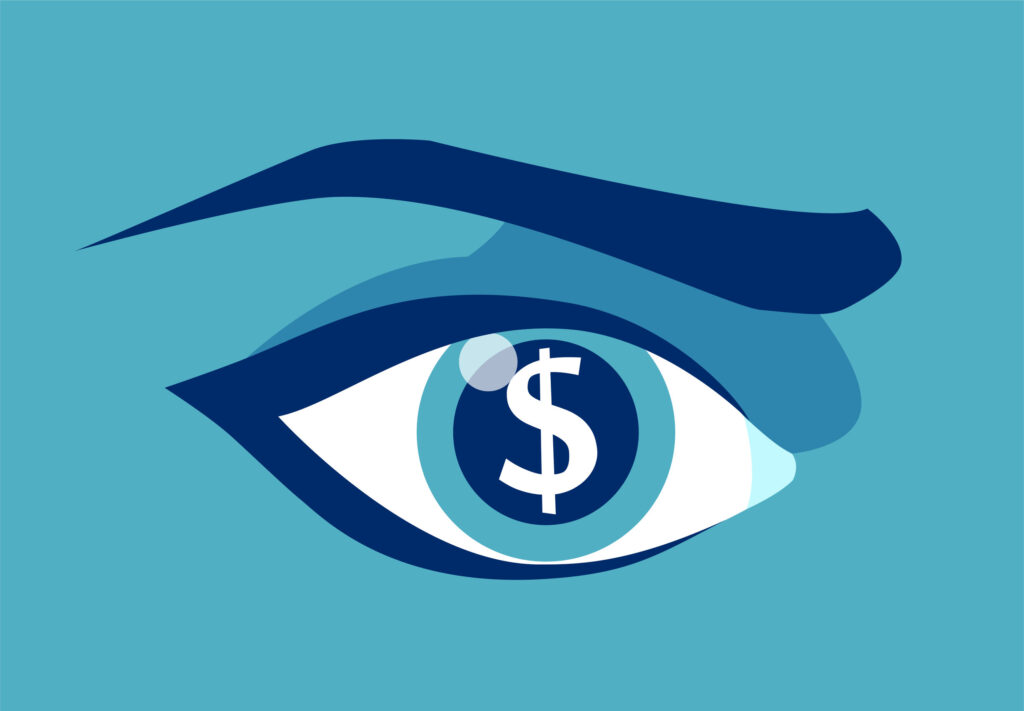
Deciding to get married is just the first of many important decisions you make as a couple. However, many people forget that there are other considerations besides how you feel about each other. For example, how to combine your finances and plan for your future together. Many of us know that financial strain can create tension in relationships, and serious money troubles often lead to divorce. That’s why it was so important to my husband and me to evaluate our financial compatibility and address these issues from the very beginning. However, even the strongest marriages face obstacles. Here are some of the greatest financial challenges we have faced in our first year of marriage.
The First Financial Challenge of Marriage
The first challenge many couples face is planning the wedding. And, with an average cost of $28,000, it’s easy to understand why this is such a hurdle. That’s a lot of money to spend on a ceremony, especially if you already have debts or want to save for a down payment on a home.
However, our situation is a little different. I never wanted to have a huge ceremony and have already started to budget for a smaller wedding for about half the average cost. Unfortunately, two wrenches were thrown into this plan. First, my husband’s job awarded him a contract that will take him out of state for at least six months. In addition to the costs of maintaining our current household, he’ll also have to rent an apartment there. Second, we received news that my dad’s health was starting to rapidly decline.
Both of these factors affected our timeline. Speeding it would have been stressful and crazy expensive with limited venues available at the last minute. However, it was really important to me that my dad was part of it. So, we decided to have a small civil ceremony at the courthouse and postpone our bigger plans. Choosing to do a courthouse wedding now allowed my dad to be present. And, it gave us more time to plan the ceremony we had originally wanted. As an added bonus, there is less pressure and paperwork to take care of later as well.
The Greatest Financial Challenges
Without a doubt, the greatest challenge has been figuring out how to file our taxes. Although nobody looks forward to tax season – besides the IRS of course – our finances are especially complicated. In addition to my husband’s primary job, we both run small businesses. Furthermore, I lived overseas previously and have international accounts which make it even more difficult.
We both have personal CPAs who have helped manage our accounts and taxes for the last several years. Therefore, my initial response was to file separately until my finances are all domestically based.
However, I have never filed jointly before. So, I didn’t realize how much of an advantage this offers couples. While it is going to be tedious tracking and itemizing all our expenses and deductions, it makes sense financially. But, the next question was deciding who we should choose to continue handling our tax returns in the future.
The deciding factor here came down to which CPA was more familiar with our situation. Although I had worked with mine for a few years, my husband’s CPA has handled his and his parent’s taxes for nearly 20 years. And with him holding more assets, it made sense for me to switch.
Despite the financial challenges in our first year of marriage, it has also been an invaluable learning experience. Not only am I more familiar with tax laws, but it has also made me more diligent with my accounting and bookkeeping. It goes to show that not all challenges have to be obstacles.
My Personal Financial Challenges of Marriage
Even though we have been very transparent, there were personal financial challenges of marriage that I had not anticipated. While we had a clear plan and shared financial goals, I had mixed emotions about losing complete independence and the disparity in our incomes.
My husband has a good job and makes considerably more than I do. However, I have been self-sufficient and paid all my own expenses since I was 18. I got used to living on a budget and prefer to maintain a minimalist lifestyle and my own bank accounts. Part of this was from necessity, and part was due to my struggles in accepting financial help, even from my partner.
On the other hand, my husband wants to enjoy the money he works so hard far. While I agree that he deserves to splurge on himself, I still find it difficult to spend anything on myself. Every extra dollar goes straight into my retirement or investment accounts or our joint savings account.
His approach in helping me deal with my own issues and perspective on money is how I know we are building a relationship that will last. He utilizes my strengths to keep us on track to reach our financial goals. However, he also is very supportive and helps me to let go and live a little. Rather than continuing to live in survival mode, he has shown me why it’s important to spend money on things you enjoy as well. In my eyes, the balance we bring to our finances also translates into other aspects of our marriage.
Overcoming the Obstacles
By no means am I claiming to be a relationship or financial expert. However, I feel we have tackled difficult financial issues that cause many relationships to fail. After our first year of marriage, I believe my husband and I have built a strong foundation. And, if we continue to communicate and work through these challenges together, it will only get stronger. At the end of the day, I know I have a partner who trusts me and supports me. And that is more valuable and important than any financial problem we will face.
Read More
- Financial Advice for Newlyweds
- Should Couples Keep Separate Bank Accounts?
- How Do I Split Bills in a Blended Family?
- Hello Prenup Review
Jenny Smedra is an avid world traveler, ESL teacher, former archaeologist, and freelance writer. Choosing a life abroad had strengthened her commitment to finding ways to bring people together across language and cultural barriers. While most of her time is dedicated to either working with children, she also enjoys good friends, good food, and new adventures.


